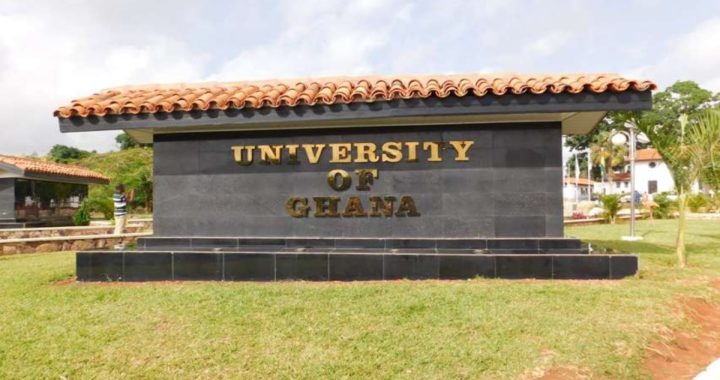Exam Preparation Tips For Making Grade “A” in Any Subject

There are many exam preparation tips out there; however, this is the average student’s examination guide to making an “A” in any subject.
Preparing for grade “A” in an examination should not be the preserve of some genius brains in your class. Every student has what it takes to perform well, and that includes you.
Often, students fail examinations because they lack discipline, a positive attitude, and dedication to academic work. They are either too busy with activities that have no positive bearing on their academics or too busy with little focus on targets.
Average and brilliant students can pass or fail the same examination. If you agree with this statement, it means average students can make an “A” in an examination by cloning best practices in their academic journey and learning approaches.
To position you to make good grades in an examination, consider the following tips:.
1. Start your examination preparation early.
The first of the 8 exam preparation tips is to start preparing early. Do not wait until the examination is a few days or weeks away. We recommend that you start preparing for at least six months before the examination and at least three months. This will help you learn in bits over the period.
Note that the best preparation for an exam is not to fall behind in your coursework.
Good preparation helps you perform well. If you prepare anyhow, you will get an anyhow score. Watch your study.
2. Students who score good grades take time to review or revise lessons.
Don’t pile your lesson notes up until the examination. At best, review them within 72 hours or 3 days after the lesson and keep working on the rough edges and facts that are difficult to understand.
During lessons, pay attention to explanations by your lecturer or teacher and make notes. You may think you have gotten it all, and so you may not write anything down. That is wrong and must always be avoided. When you write, you can always go back to a reference.
When preparing, do not use more than two additional textbooks in addition to the lecture notes. That can make it difficult to learn at times.
3. Good performance in the exams requires further reading and research.
If you rely solely on your lecturer’s notes, you may not make an “A.” Average students seeking to make good grades must read widely and add to the knowledge stock obtained from attending classes, group discussions, and lecture notes.
4. Set result targets for each subject.
How can you be preparing for an examination without a target grade in mind for each subject?
The targets you set help you work even harder. They challenge your commitment and trigger consistent effort and dedication.
Do this with all subjects as part of your exam preparation, tips, and strategy. If possible, with the help of a teacher or teachers who are interested in your performance,.
5. Know the kind of test you will take and learn with that in mind.
Most examinations require students to answer objective and essay-type questions.
If that is the case, you must pay attention to little details across the text you read to help you score good marks in the objective test.
If the examination is a subjective test, master how questions are supposed to be answered per subject and engage in constant practice. Solve similar questions as part of your personal self-assessment.
Master how to introduce or start answering such questions, how to develop point introductions, and the way examples are introduced into essays to make the answers complete. Also, learn various ways to conclude essays. These are things brilliant students do to earn good grades; average students can do the same things.
6. Review past questions from the exam.
Musicians, footballers, and athletes prepare and rehearse countless times before the main event. Students who want to perform well in an examination must do the same.
Look for past questions of the examining body and review them for each topic. This helps you have a fair idea of how to answer questions, what the examiners are looking for, and how to access what you have learned.
Although examiners may not always repeat questions, practicing with previous papers helps you weigh your understanding and knowledge acquired per topic and subject.
7. Create and use question banks.
One of the exam preparation tips many students do not consider is creating their own question bank.
A question bank is simply a book containing questions from varied sources. They may include your own questions while learning a topic or subject.
You can make this more fun by writing questions down after each lesson and providing a skeletal answer for each of them. This can serve as a quick review for the easy type of examination you are preparing for.
With this, you can easily revise because the question bank serves as good reference material for you throughout your preparation.
Use the same book as practice test material with your learning group or during your private study.
By reviewing questions together in groups, you would be learning and sharing with others. It is one of the easiest ways to study.
You would notice that brilliant students constantly explain facts about a subject or a topic to their colleagues. The more they do this, the less they have to relearn again.
8. Use group study to vary your learning experience.
The final part of the exam preparation tips is to engage in group study and learning. It is an amazing way to learn with and from like-minded people. Join or create study groups with only serious and dedicated students.
Assign members the duties of learning specific topics, which they must share with the group members. By doing this, you get better explanations and examples from members who understand the topic better.
However, ensure no member gives the wrong facts in group discussions.
Conclusion: 8 Exam Preparation Tips
ALSO READ: 8 Teachers Developmental Skills Needed to Work in the Educational Sector
In this article, we have identified eight exam preparation tips that average students can use to help them perform better in examinations. They include.
- Start your examination preparation early.
- Review or revise lessons, and start early.
- Set Results Targets for Each Subject
- Do further reading and research.
- Know the kind of test you will take and learn with that in mind.
- Review past questions from the exam.
- Create and use question banks.
- Use group study to vary your learning experience.
It is my hope that this was helpful. There are more articles coming up on learning and passing your examination. Keep your academic focus and work hard, for it will pay off one day.
Source: Wisdom Hammond
Send Stories | Social Media | Disclaimer
Send Stories and Articles for publication to [email protected]
We Are Active On Social Media
WhatsApp Channel: JOIN HERE
2024 BECE and WASSCE Channel - JOIN HERE
Facebook: JOIN HERE
Telegram: JOIN HERE
Twitter: FOLLOW US HERE
Instagram: FOLLOW US HERE
Disclaimer:
The information contained in this post on Ghana Education News is for general information purposes only. While we endeavour to keep the information up to date and correct, we make no representations or warranties of any kind, express or implied, about the completeness, accuracy, reliability, suitability or availability with respect to the website or the information, products, services, or related graphics contained on the post for any purpose.




 Banting Postdoctoral Fellowships 2024 in Canada | Fully Funded
Banting Postdoctoral Fellowships 2024 in Canada | Fully Funded  Top 10 Universities in the World 2024: New Ranking
Top 10 Universities in the World 2024: New Ranking  UNESCO World Heritage Young Professionals Forum 2024
UNESCO World Heritage Young Professionals Forum 2024  UG MSc Computer Science Admission Requirements and How to Apply
UG MSc Computer Science Admission Requirements and How to Apply
Please I will really follow this advise and see how I will perform in the second mock